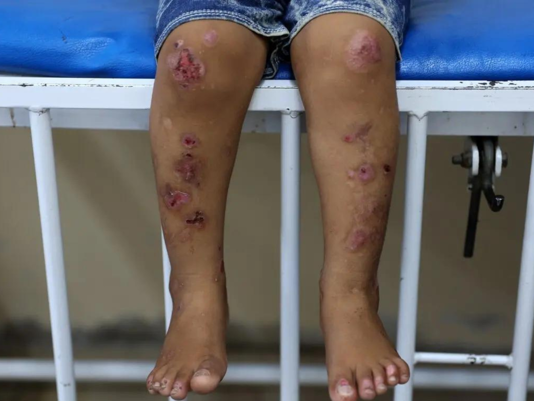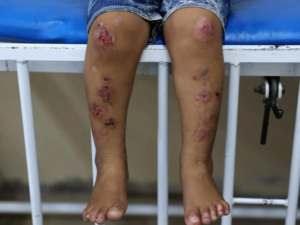
WHO considers an international health emergency for Mpox virus
- Health Security
- No Comment
- 343

The World Health Organization (WHO) is contemplating a major step in response to a rapidly escalating mpox outbreak in Africa. Dr. Tedros Adhanom Ghebreyesus, the WHO Director-General, has indicated that he might convene an expert committee to advise on whether the outbreak should be declared an international public health emergency. This decision comes amid a troubling surge in cases, particularly in the Democratic Republic of Congo (DRC), and the detection of a more dangerous strain in neighboring African countries.
Surge in Mpox Cases
Since September of the previous year, the Democratic Republic of Congo has witnessed a significant increase in mpox cases. The outbreak has been exacerbated by a strain of the virus recently identified in surrounding countries. The WHO, along with the Africa Centres for Disease Control and Prevention, local governments, and other partners, is intensifying its response to the crisis. However, Dr. Tedros has highlighted the need for more funding and support to mount a comprehensive response.
In a statement on the social media platform X, Dr. Tedros expressed his concern about the outbreak’s growing impact and the need for enhanced measures. He mentioned that he was considering convening an International Health Regulations (IHR) emergency committee to evaluate whether the situation warrants a declaration of a public health emergency of international concern (PHEIC). Such a declaration would represent the highest level of alert by the WHO, triggering an international response to the outbreak.
What is Mpox?
Mpox, formerly known as monkeypox, is an infectious disease caused by the monkeypox virus. This virus is part of the Orthopoxvirus genus, which also includes variola (smallpox), cowpox, and vaccinia. Mpox was first identified in humans in 1970 in the Democratic Republic of Congo. The disease is characterized by fever, muscular aches, and skin lesions that resemble large boils.
Mpox has two main genetic clades: Clade I and Clade II. The recent global outbreak was primarily caused by Clade IIb, but the current surge in Africa involves a different strain known as Clade Ib.
Mpox Transmission and Symptoms
Mpox can be transmitted to humans through contact with infected animals, contaminated materials, or from person to person through close physical contact. The virus spreads through direct contact with infectious lesions or bodily fluids, including respiratory droplets from prolonged close contact.
Symptoms of mpox typically begin within a week of exposure and include fever, headache, muscle aches, back pain, low energy, and swollen lymph nodes. A distinctive rash often develops, starting as flat sores that turn into blisters filled with fluid. As the rash progresses, the lesions dry out, crust over, and eventually fall off. The rash can appear anywhere on the body.
Diagnosis and Treatment
Diagnosing mpox can be challenging as its symptoms can resemble those of other infections. Laboratory confirmation is essential, with polymerase chain reaction (PCR) testing being the preferred method. Samples for testing are usually taken from skin lesions or bodily fluids.
Treatment for mpox focuses on supportive care to manage symptoms and prevent complications. Antiviral medications, such as tecovirimat, initially developed for smallpox, are used in some cases. Vaccination is also a crucial preventive measure, particularly for those at high risk of infection.
Recent Developments and Responses
The recent surge in mpox cases, particularly in the DRC, has been alarming. By July 11, Dr. Tedros reported over 11,000 cases and 445 deaths in the DRC, with children being particularly affected. In response, the African Union has urgently allocated $10.4 million from COVID-19 funds to support efforts in combating the outbreak. This funding will be used to enhance monitoring, testing, data collection, case management, and vaccine distribution.
In addition to the DRC, cases have recently been reported in Burundi, Kenya, and Uganda, with the latter detecting its first two cases, likely linked to the outbreak in the DRC.
International Health Regulations and PHEIC
The International Health Regulations (IHR) provide the framework for countries to handle public health emergencies that could cross borders. Under the IHR, the WHO Director-General has the authority to declare a PHEIC, which triggers emergency responses from member countries. Since 2009, PHEIC declarations have been made for H1N1 swine flu, poliovirus, Ebola, Zika virus, another Ebola outbreak, COVID-19, and mpox.
https://economictimes.indiatimes.com/



